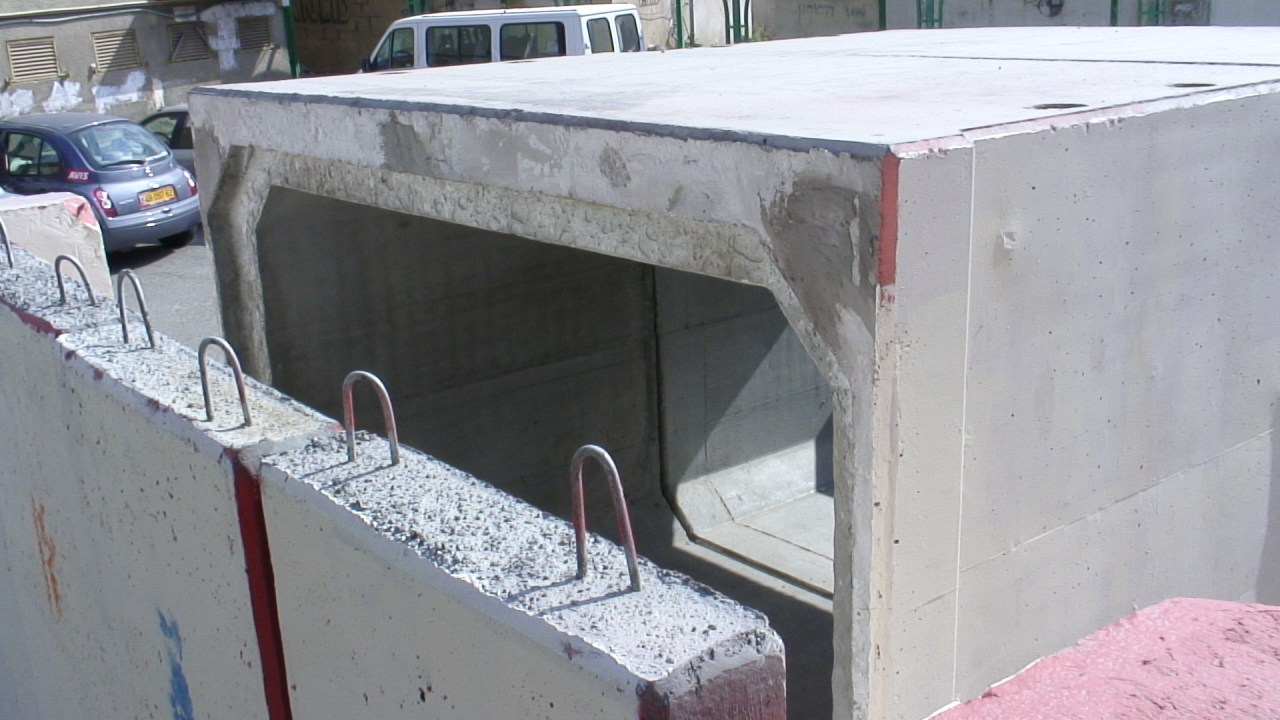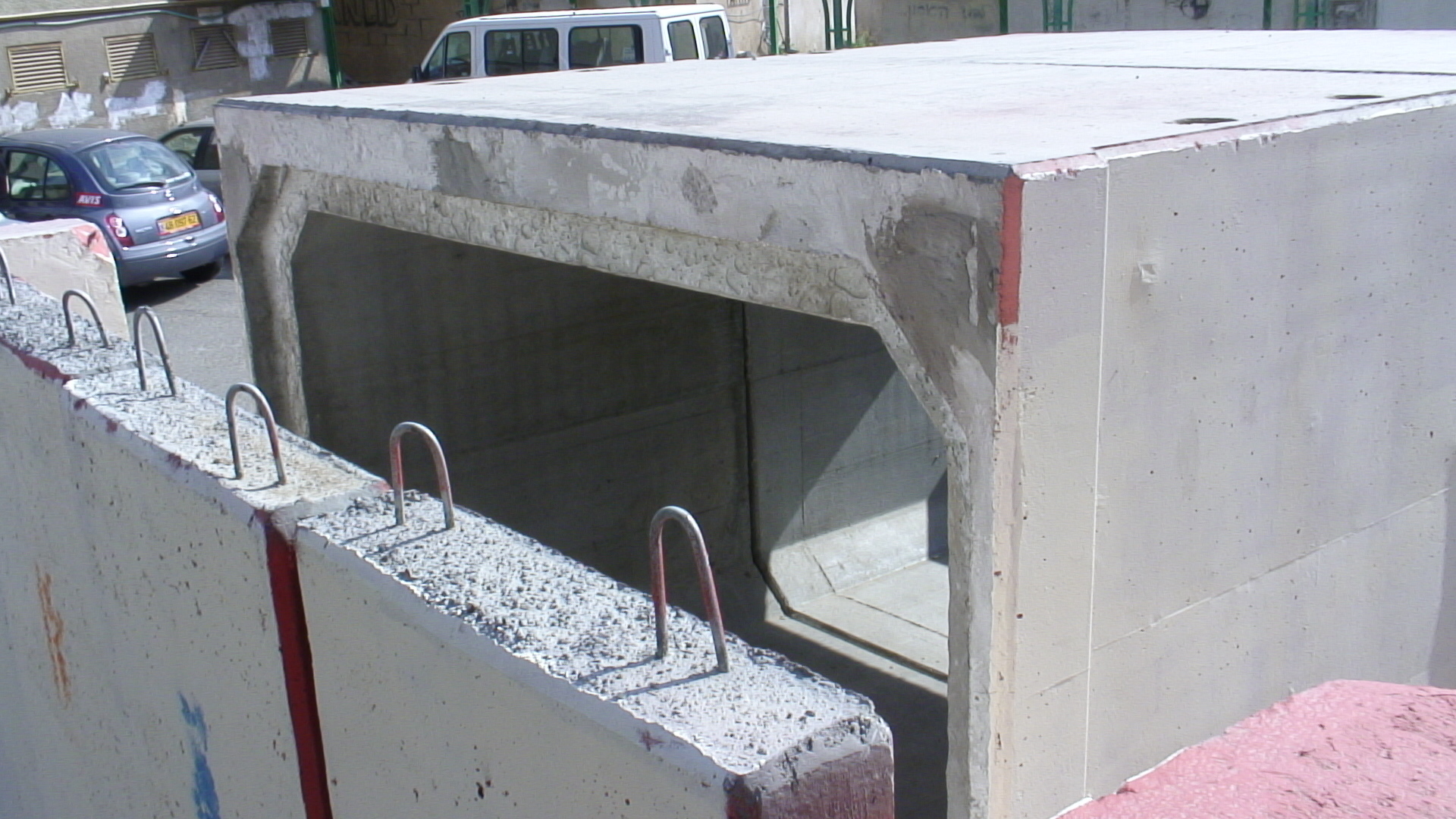Yesterday, I visited the Southern Israeli town of Sderot. Being perched on the border with Gaza, it’s subjected to a constant barrage of rockets from Hamas and their associates. A few stream-of-consciousness observations and thoughts below – all lifted from my notebook and from conversations with Sderot locals – as well as some photographs and video footage:
1) On our arrival, at just before 10am, we were told that 8 Qassam rockets had already fallen on Sderot that morning. One of these hit a house in the Niot Neviin suburb, Thankfully, the only casualty was the bathroom [see the video footage I shot on the scene, below], although it’s hard to imagine how traumatised the owners must be. They’ll have a thousand grim “what-ifs?” running through their heads.
2) Since the beginning of 2008, over 1,600 rockets and mortars have been fired from Gaza into Israel
3) The rockets wreak terrible psychological damage, particularly on children. We heard tell of – among other things – pre-school children who are clinically depressed, and teenagers who still wet the bed at night. The rockets dominate every aspect of their lives and upbringing – they even play “educational” games which simulate rockets falling.
4) The warning sirens have been criticised for being almost imperceptible. Rather than the blitz-era wail you might expect, it’s a man’s voice saying (in Hebrew) “Red colour, red colour”. When a siren sounds, it means you have around 15-30 seconds to find shelter before a rocket hits.

One of the many rocket shelters dotted all across Sderot.
5) Why don’t people leave? For starters, a number already have. At the start of the attacks, the population of Sderot was around 24,000. Now it stands at 20-21,000. For those who remain, the primary obstacle to their departure is that they can’t afford it. I guess property in a town-turned-warzone isn’t particularly popular, so it’s difficult for current residents to sell up and move on. Some people do remain out of choice – because they grew up in Sderot, because it’s their home, etc.
6) There have been three generations of “home-made” Qassam rocket, the latest of which carries a 5kg payload a distance of 19km. Hamas have also acquired some military-made Grad rockets, although they use them much more sparingly. These carry a 7kg payload around 21km. This means that it’s not only Sderot which is affected – some 267,000 Israelis are in range of rocket attacks from Gaza.
7) There’s a significant amount of anger with the Israeli government among the residents of Sderot. Here’s what one had to say (in agitated tones): “I’m not sure the people want the Government to be more aggressive … but the Government should take greater responsibility for the situation … it is the responsibility of the Government to make sure everone is protected.
8) Hamas are tearing Gazan infrastructure apart to ensure the rockets keep falling on Israeli heads. Why are there no traffic lights in Gaza? Because the pipes which support them are being cut up and made into Qassams. Why is the Gazan drainage and sewage system so substandard? Same reason.
9) Since the rocket attacks began in 2000, 13 Israelis have been killed; 345 injured; and 1000s treated for shock.
10) According to the local police spokesman, , Hamas and their jihadist associates concentrate their attacks at 7am-10am, and 3pm-6pm. Why? That’s when people are up-and-about, and children are going to/from school.

Police spokesman Micky Rosenfield standing beside 500 used Qassam rockets.
11) The most astonishing discovery of the visit was the feeling of solidarity that the residents of Sderot have towards the majority of the Gazan population. There’s a real sense that the two groups are in this together; that their suffering is shared. One resident told us: “We’re hostages … we’re trapped in the same situation … and we know that’s true for the people in Gaza as well … we cry when their babies die.” Why no anger? Because the Gazans are regarded as distinct from the Gazan leadership: “I believe the ones running Gaza [i.e. Hamas] are the ones who want to destroy Israel.”
12) A Sderot resident: “It’s important that the world knows there’s a war going on, and it’s going on on both sides.”







Comments